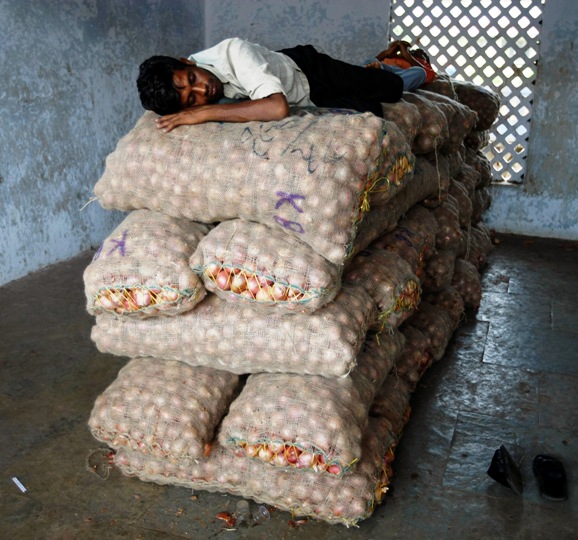Photographs: Reuters Suvashree Dey Choudhury and Rajesh Kumar Singh in Mumbai/New Delhi
India took steps on Tuesday to support the beaten-down bond market, in moves also expected to prop up the battered rupee, while a top official said there was no need to issue sovereign bonds to Indians abroad or bring in capital controls.
On Tuesday, the rupee fell past 64 to the dollar for the first time and bond yields spiked to a five-year high before the Reserve Bank of India stepped in to sell dollars.
Asia's third-largest economy has been hammered by a selloff in emerging markets -- particularly those that have to fund large current account deficits -- on concerns over the impact of the expected winding down of US central bank stimulus.
. . .
What steps India is taking to support markets
Photographs: Fayaz Kabli/Reuters
Late in the day, the RBI said it would buy long-dated government bonds worth 80 billion rupees through an open market operation on August 23 and would decide after that on the amount and frequency of further operations as warranted.
A series of liquidity-tightening measures to support the rupee has sent interest rates surging, prompting many economists to cut their growth outlooks for Asia’s third-largest economy, which grew at a decade-low 5 per cent in the last fiscal year.
"I think the steps will help the rupee positively," as foreign investors are attracted back to Indian debt on the expectation of falling yields, said N.S. Venkatesh, treasurer at IDBI Bank.
. . .
What steps India is taking to support markets
Photographs: Sondeep Shankar/Getty Images
No capital controls
Separately, Economic Affairs Secretary Arvind Mayaram, one of the most senior officials at the finance ministry, said there was no need currently for a bond issue to non-resident Indians.
A bond issue to NRIs is among the measures that has been discussed by the government in order to attract inflows to support the embattled currency.
"In today's scenario, I think that will give a much greater panic situation because we don't need that kind of money at this moment," Mayaram said in a conference call organised by Nirmal Bang Institutional Equities.
He also ruled out capital controls.
. . .
What steps India is taking to support markets
Image: A trader sleeps on sacks of onions at a wholesale market in Ahmedabad.Photographs: Amit Dave/Reuters
India has taken several measures that restrict outflows, prompting market worries about further such steps.
"There is no intention of government of India to put any capital controls as such," Mayaram said.
With a record high current account deficit, India is especially exposed to the expected gradual reduction of the US Federal Reserve's quantitative easing.
"There is a kind of sense of panic in the market. We believe it is completely unfounded," Mayaram said.
The RBI also relaxed rules on mandatory bond holdings for banks, known as the statutory liquidity ratio, which will help protect lenders from large mark-to-market losses.
. . .
What steps India is taking to support markets
Image: A worker walks past parked Renault cars at its stockyard on the outskirts of Ahmedabad.Photographs: Amit Dave/Reuters
In contrast to an earlier rule asking banks to cut their hold-to-maturity bond holdings gradually to 23 per cent of deposits, the RBI on Tuesday allowed banks to retain those holdings at 24.5 per cent of deposits.
"RBI is trying to ensure that the unintended consequences of their liquidity tightening steps that led to spike in long-end bond yields are corrected," said Ashish Parthasarthy, treasurer at HDFC Bank.
"These measures will bring down 10-year bond yield sharply and will also reduce banks' depreciation losses significantly."
(Additional reporting by Frank Jack Danielm)







article